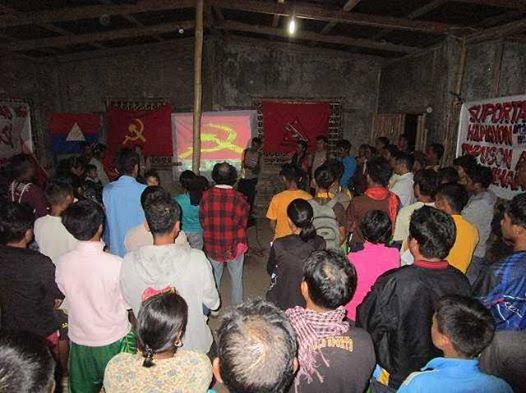
Members of the Communist Party of the Philippines’ Panay Regional Committee meet somewhere on Panay Island to discuss strengthening the New People’s Army in the region in 2017. (CONTRIBUTED PHOTO)
ILOILO CITY — Communist rebels on Panay Island plan to double their armed force even as they declared support for the ongoing peace negotiations with the Philippine government.
In a statement marking the 48th founding anniversary of the Communist Party of the Philippines (CPP) on December 26 (Monday), the CPP’s Panay Regional Committee said one of its key goals in the coming year would be to boost the New People’s Army (NPA), the CPP’s armed wing on the Panay island.
It urged revolutionary mass organizations to “contribute directly to the massive increase in troop strength.”
The CPP regional committee said the NPA in Panay grew in strength even before the ongoing ceasefire with the government took effect in August.
The rebel group expanded and consolidated its “mass base” in western and northeastern Panay this year, according to the rebel statement.
It said protest actions on the island have also drawn from a few thousands to 13,000 to push for jobs and higher wages, release of assistance to survivors of Supertyphoon “Yolanda,” condemnation of the burial at the heroes’ cemetery of former president Ferdinand Marcos and massive killings of suspected drug personalities.
The CPP in Panay noted that the Liberal Party (LP) which had considered Panay as its bailiwick, has been “neutralized” with many of its leaders “coopted” by the Duterte administration.
It said the administration has done this by using its anti-drug campaign to “tarnish” and “intimidate” LP-allied politicians, referring among others to mayors in Iloilo and Antique who were named by President Duterte as among those involved in illegal drugs.
The administration is also widening its support at the grassroots by putting up organizations of its political backers and supporters, according to the CPP in Panay.
The rebel group decried the anti-drug campaign, which has resulted in the killing of about 6,000 suspected pushers and users nationwide.
“It is true that the campaign has a drastic effect to neutralize but it did not eliminate the widespread drug proliferation and the addictive drug’s paralyzing effect on society,” the CPP Panay regional committee said.
It noted that those killed were “mainly impoverished drug users.” SFM